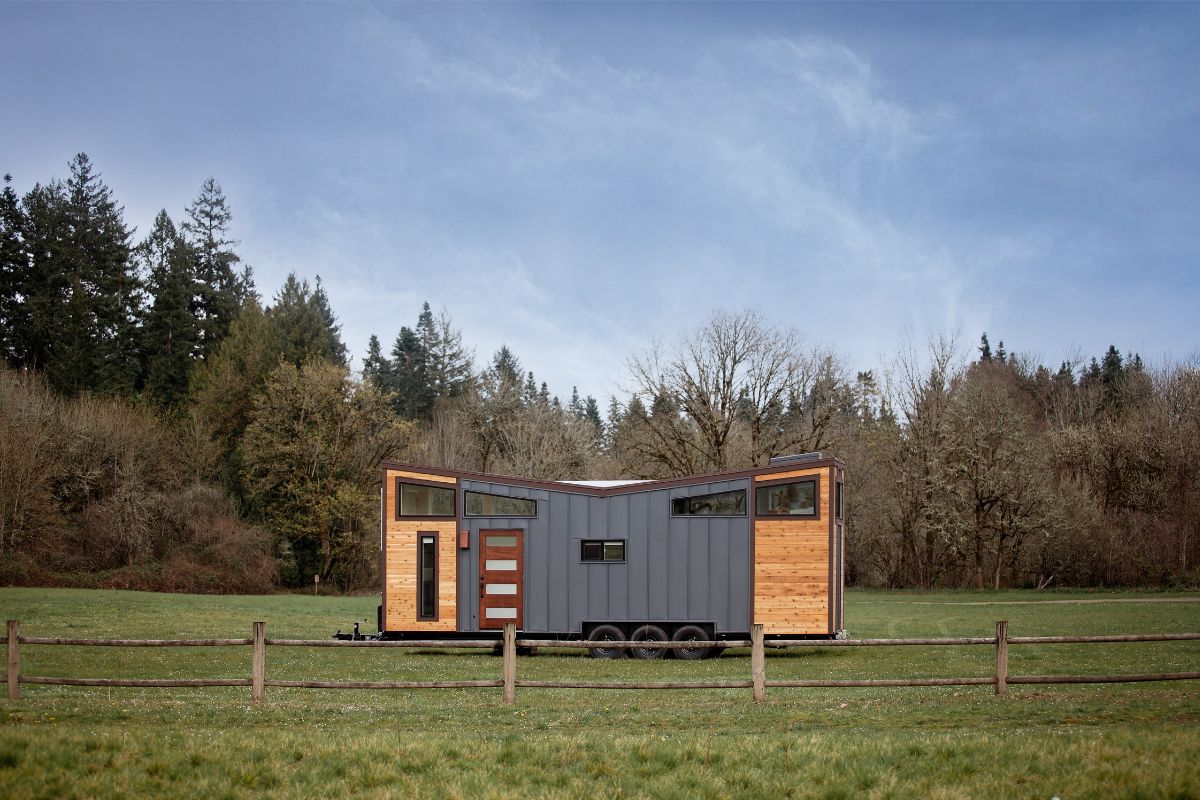Features of a Good Tankless Water Heater

Image Source: Canva
When you're selecting a tankless water heater, you need to evaluate its output and efficiency first. Look for a high BTU rating and an Energy Factor (EF) of 0.9 or higher. The unit should be lightweight and compact for easy installation, and it's also crucial that it operates quietly.
1. High BTU and EF rating above 0.9 ensure efficiency and reduced waste.
2. Choose lightweight and compact units for easy installation and space-saving.
3. Opt for units with quiet operation to maintain a peaceful environment.
4. Ensure easy maintenance with features like self-cleaning and diagnostic codes.
5. Look for solid warranties and reliable customer support for long-term satisfaction.
A good heater will have features for easy maintenance, like self-cleaning capabilities and diagnostic codes. Additionally, it must be reliable, made from durable materials, and backed by a solid warranty. Don't forget to check the safety certifications and environmental impact too. So, ready to explore more about these features?
High Output and Efficiency
When selecting your tankless water heater, its output and efficiency should be your top priority, as a high BTU rating guarantees quick and energy-efficient heating without the wastefulness of a constantly burning pilot light.
This rating, measured in British Thermal Units, signifies the heater's capacity to raise the temperature of a pound of water by one degree Fahrenheit. Hence, a greater BTU indicates a higher heating capacity. Yet, don't just focus on high output; efficiency matters too.
An energy-efficient model won't just save your pocket, it'll also reduce your carbon footprint. Look for units with an Energy Factor (EF) rating of 0.9 or higher. This implies that 90% of the energy is effectively used in heating, reducing waste.
Reliability and Dependability
Additionally, you'll want to make sure the tankless water heater you choose is both reliable and dependable. This means it should consistently provide hot water on demand without frequent breakdowns. Look for a heater made from high-quality, durable materials that can withstand regular use.
It's important to check the manufacturer's reputation. Companies with a proven track record usually produce units that perform well over time. Also, read reviews from other customers to see if the heater performs as advertised.
Longevity is another consideration; a good heater should last at least 10-20 years with proper maintenance. Lastly, ensure it comes with a solid warranty. This protects you against defective parts or malfunction, enhancing the heater's overall dependability.
Weight and Compactness
Considering the weight and compactness of a tankless water heater is also crucial; you'll want a lightweight, compact unit that's easy to install and convenient for travel if necessary. A heavy or bulky heater can be a hassle, especially if you're moving or rearranging your space. Compactness is important, particularly in smaller homes, RVs, or mobile homes where space is at a premium. You'll appreciate a unit that doesn't hog your valuable real estate.
Lightweight models typically have an edge in installation; they're easier to mount, saving you time and potential frustration. However, don't compromise on quality and performance for a lighter unit. It's about finding the right balance.
Noise Level
While you may not immediately think about it, the noise level of your tankless water heater is an essential factor to take into account. A good water heater operates quietly, causing minimal disturbance to your peaceful environment. This is especially critical if you're living in settings with noise restrictions, such as an RV park or apartment complex.
Loud operational noise can be a nuisance and disrupt your daily activities or sleep. Some high-quality heaters feature advanced technology to keep the noise level down. Make sure to check the product specifications or consult reviews to assess the noise output.

Ease of Installation and Maintenance
Choosing the right tankless water heater also means finding a unit that's easy to install and maintain. You'll appreciate an appliance that comes with a detailed, user-friendly manual. Ideally, the unit should require minimal tools and steps to install, saving you time and potential installation costs. Some models may even include an installation kit.
In terms of maintenance, look for units with self-cleaning features to reduce mineral build-up. This not only improves efficiency but also extends the heater's lifespan. Regularly check for leaks or cracks and ensure that venting systems are clean and clear. Some models offer diagnostic codes to troubleshoot issues quickly. Ultimately, a heater that's straightforward to install and maintain leads to less hassle and more hot water.
Serviceability
In your quest for the ideal tankless water heater, don't overlook the importance of serviceability. This refers to how easily you can perform routine maintenance or repair tasks on the unit.
Look for models designed with serviceability in mind. These are often equipped with accessible panels and components that can be replaced without dismantling the entire unit. A serviceable heater not only saves you time but also reduces the cost of maintenance or repairs.
Additionally, consider the availability of spare parts. It's essential that these components are readily available, so you don't face extended downtime when parts need replacing.
Ultimately, a tankless water heater's serviceability can have a significant impact on its lifespan and functionality.
Safety and Certifications
To guarantee your safety and that the tankless water heater functions at its best, it's crucial to check for relevant certifications from recognized industry bodies. Certifications, like those from the Underwriters Laboratories (UL) or the Canadian Standards Association (CSA), validate that the heater complies with stringent safety standards. They also confirm the unit's performance claims.
You should also look for a heater with safety features such as overheat protection, automatic shut-off, and anti-scalding technology. These features prevent accidents, offering you peace of mind. Remember, certifications aren't just stickers but proof of a product's safety and efficiency.
Environmental Considerations
Moving on from safety considerations, let's not forget the environmental footprint of your tankless water heater. You'll want a heater that operates cleanly, with minimal emissions. Look for a model that's designed with the environment in mind. This includes efficient fuel use and smart technology to reduce wasted energy.
Some units even have energy-saving modes that use less power when you're not home. Also, consider the heater's lifespan. A longer lifespan means less waste when it's time to replace it. Finally, check if the unit is made from recyclable materials. This way, even when it's past its use, it doesn't add to the landfill.
Customer Support
You'll find that excellent customer support can make all the difference when selecting a tankless water heater. Good manufacturers back their products with robust support, providing important assistance before, during, and after your purchase. They'll answer any queries you have about the product, helping you understand its features and installation process.
If you encounter issues, they'll swiftly address them, minimizing your downtime. Moreover, they'll offer a solid warranty that covers parts and labor for a significant period, giving you peace of mind. This warranty should be hassle-free, with a straightforward claim process.
Conclusion
When selecting a tankless water heater, make sure it's high-performing, efficient, reliable, and compact. It should be easy to install, maintain, and service, with minimal noise.
Safety certifications are a must, and it should have minimal impact on the environment. Don't overlook the importance of stellar customer support.
Remember, a good warranty is indicative of a quality product. Making an informed choice guarantees you a water heater that's worth every penny.









